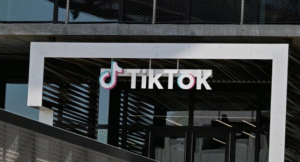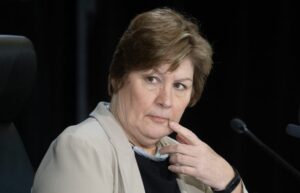
President Recep Tayyip Erdogan waves to supporters outside his residence in Istanbul on Sunday.
Recep Tayyip Erdogan won Turkey’s presidency in a run-off election with 52.14 per cent of the votes, the High Election Board head Ahmet Yener said on Sunday, making the results official.
With 99.43 per cent of ballot boxes opened, Erdogan’s rival Kemal Kilicdaroglu received 47.86 per cent of the votes, Yener said. With a gap of more than two million votes between candidates, the rest of the uncounted votes will not change the result, he added.
This is a breaking update. A previous version of this story can be read below.
Recep Tayyip Erdogan claimed victory in Turkey’s presidential election on Sunday, a win that would steer his increasingly authoritarian rule into a third decade.
Addressing supporters, Erdogan said voters had given him the responsibility to rule for the next five years.
“The only winner is Turkey,” the incumbent president said, addressing cheering supporters from atop a bus in Istanbul.
Final official results have yet to be released.
Erdogan’s challenger, Kemal Kilicdaroglu — who had the backing of a six-party opposition alliance — said he will continue to lead his struggle after the early results showed him losing in what he said was “the most unfair election in years.”
Speaking in Ankara, Kilicdaroglu, who got some 47.9 per cent of votes in Sunday’s runoff, said the results showed people’s will to change an authoritarian government. He is saddened by the “troubles” awaiting Turkey, he said.
A man in a suit waves as he follows behind a woman dressed in red among a throng of people holding up their hands and cameras in an overhead shot.
Turkish presidential candidate Kemal Kilicdaroglu waves as he follows his wife, Selvi Kilicdaroglu, out of a polling station in Ankara on Sunday.
Russian President Vladimir Putin offered congratulations to Erdogan. The presidents of Iran and Algeria and the Emir of Qatar were among leaders to congratulate him in the Middle East, where he has asserted Turkish influence, at times with military power.
The election had been seen as one of the most consequential yet for Turkey, with the opposition believing it had a strong chance of unseating Erdogan after his popularity was hit by a cost-of-living crisis.
Instead, victory will reinforce his image of invincibility, after having already redrawn domestic, economic, security and foreign policy in the NATO member country of 85 million people and positioned Turkey as a regional power.
Supporters gathered at his Istanbul residence in anticipation of victory as data reported by both state-run Anadolu agency and the opposition ANKA news agency gave him the edge with nearly 99 per cent of ballot boxes counted.
The head of the High Election Board earlier told a news conference that Erdogan was leading Kilicdaroglu with 53.41 per cent support, with 75.42 per cent of ballot boxes logged.
Erdogan, head of the Islamist-rooted AK Party, appealed to voters with nationalist and conservative rhetoric during a divisive campaign that deflected attention from deep economic troubles.
The defeat of Kilicdaroglu, who promised to set the country on a more democratic and collaborative path, would likely be mourned in Western capitals which have been alarmed by his ties to Russia.
Across the Middle East, the prospect of five more years of Erdogan does not appear to be prompting the alarm it might once have after he reached accommodations with several of the governments with which he had been at odds.
Erdogan supporters who were gathered outside his Istanbul residence chanted Allahu Akbar, or God is Greatest.
“I expect everything to become better,” said Nisa, 28, a woman wearing a headscarf and a headband bearing Erdogan’s name.
Another Erdogan supporter said Turkey would get stronger with him in office for five more years.
“There are issues, problems in every country around the world, in European countries as well.… With strong leadership we will overcome Turkey’s problems as well,” said Mert, 39, who had come to celebrate with his son.
“I feel sad and disappointed but I am not hopeless. I still think there are people who can see the realities and truth,” Oztug said.
Erdogan’s performance has wrong-footed opponents who also thought voters would punish him over the state’s initially slow response to devastating earthquakes in February, in which more than 50,000 people died.
But in the first round of voting on May 14, which included parliamentary elections, his AK Party emerged top in 10 of the 11 provinces hit by the earthquakes, helping it secure a parliamentary majority along with its allies.






